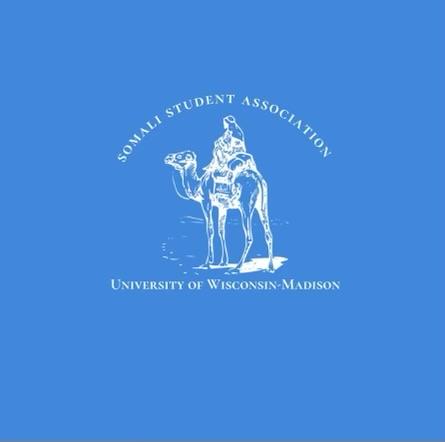The Somali Student Association, a new Registered Student Organization partnered with the Multicultural Student Center, was recently formed to create a space for Somali students to have a community and educate others about their culture, according to SOSA President Mohammud Ibrahim.
Ibrahim, a junior at the University of Wisconsin, had the idea to create this organization when he noticed a lack of resources and community that linked Somali students to each other on campus.
“I felt like there was not a space for Somali students to come together on campus … I wanted to create that bond with other students,” Ibrahim said. “I felt like people could connect like I [would] run into someone who was Somali and it was just like ‘Oh my god you’re Somali’ type of thing.”
After realizing there was a need for Somali students to have a community, Ibrahim and other Somali-identifying students gathered to form the organization, now known as SOSA. They worked through the process of finding research, conducting meetings and connecting with UW and the MSC to be recognized as an official RSO with an MSC affiliation.
SOSA is primarily for Somali students to come together, bond and connect over common issues that stem from being Somalian in Madison. That, however, is not its only purpose, according to Ibrahim.
The organization is also meant for other non-Somali students and community members to learn about Somalian culture, according to Ibrahim.
“A lot of people are not aware of the Somali culture,” Ibrahim said. “But teaching other students or faculty, staff, really anyone on campus about the Somali culture, traditions that take place, our history and our background.”
One of the hopes and purposes of SOSA is to raise awareness, educate, celebrate and promote Somali culture to help address the unique challenges of Somali students at UW, SOSA Secretary Hali Jama said in an email statement to The Badger Herald. It is meant to promote diversity and inclusion on campus.
The process to start a student organization requires a lot of research to ensure requirements are met and there is a basic application that must be filled out regarding the main persons of contact and board positions, constitution and bylaws, according to MSC Organizational Development Specialist Kiki McCance.
The SOSA board consists of President Mohammud Ibrahim, Vice President Isoudine Daher, Outreach Coordinator Zuheb Ibrahim, Event Coordinator Najwa Hassan, Marketing Chair Hani Sulieman, Treasurer Weris Jama and Secretary Hali Jama.
There’s more than one double affiliation organizations can have as an RSO, including the Wisconsin School of Business, the Multicultural Student Center or the School of Education, McCance said. To become affiliated with the MSC, there is a separate set of application questions and requirements that must be met to take advantage of the resources the MSC has to offer.
As a partner of the MSC, this allows SOSA to have access to more funds and resources, according to McCance.
“I’m hopeful that they [SOSA] can get their footing, but I think that they have a strong community and I’m excited to see what they do,” McCance said. “We’re seeing an increase in Middle Eastern and African [organizations] at UW–Madison. Last spring the North African Student Association was founded … they’re finally given the platform and resources … to be louder with their voice on campus, which is really exciting.”
As a new student organization, it can be hard to get the word out and bring new members in, but word of mouth has been the most effective tool so far, Ibrahim said.
SOSA plans to grow and expand through outreach events and social media, partnering with local Somali organizations and collaborating with other student organizations and clubs to reach a wider audience and to foster the diverse community across campus, Hali Jama said.
Inclusivity, unity and cultural appreciation are very important to SOSA, according to both Ibrahim and Jama.
“The Somali Student Association is not only a place for Somali students but also a bridge for cultural exchange and understanding among all students on campus,” Jama said. “We welcome everyone to join us in celebrating diversity and building a more inclusive community.”
Ibrahim also emphasized the inclusivity of the organization, inviting everyone who is interested in Somali culture, no matter their background, to come and learn more about it.
Additionally, the organization is dedicated to creating and fostering a welcoming environment on campus for all those involved in Somali culture or just generally interested, according to Ibrahim.
Poetry is very important in Somali culture, so SOSA is planning on hosting events centered around poetry to really highlight that aspect of the Somalian culture, according to Ibrahim.
“Poetry is essential, it’s really significant in Somali history,” Ibrahim said.
Since the organization is so new, there are not many events currently planned, but Jama and Ibrahim both recommend keeping up with their Instagram page to stay informed. There is also an interest form linked on their page to stay in contact with the organization and to suggest future events.


